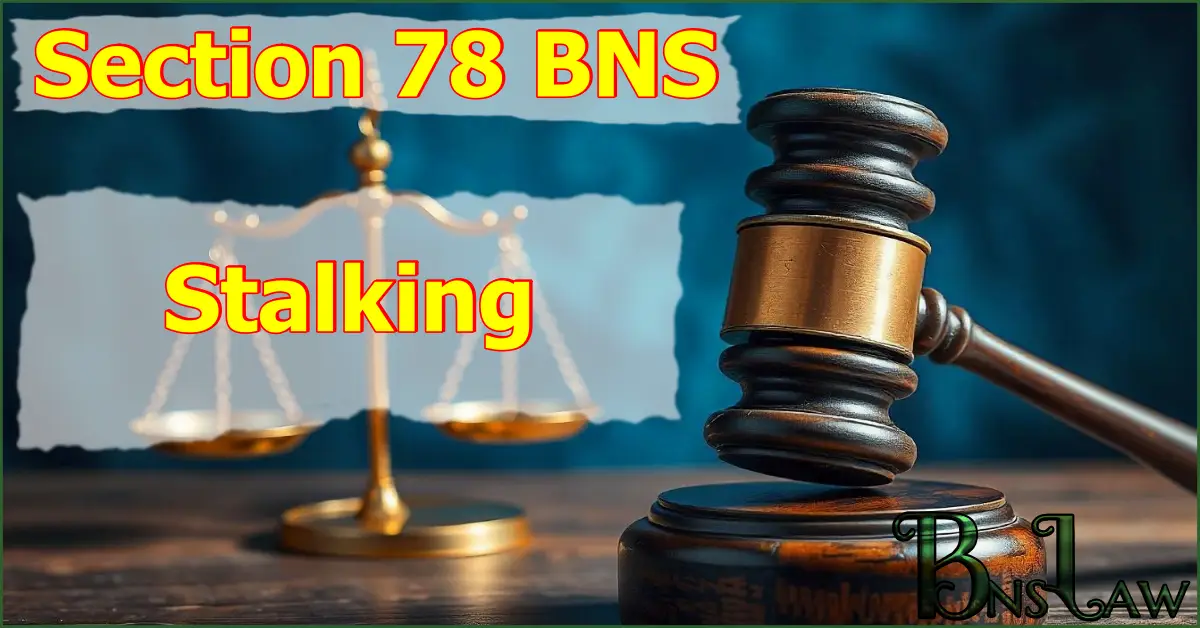Section 78 BNS | Stalking Section in BNS | BNS 78
78(1) BNS
Any man who—
(i) follows a woman and contacts, or attempts to contact such woman to foster personal interaction repeatedly despite a clear indication of disinterest by such woman; or
(ii) monitors the use by a woman of the internet, e-mail or any other form of electronic communication, commits the offence of stalking:
Provided that such conduct shall not amount to stalking if the man who pursued it proves that—
(i) it was pursued for the purpose of preventing or detecting crime and the man accused of stalking had been entrusted with the responsibility of prevention and detection of crime by the State; or
(ii) it was pursued under any law or to comply with any condition or requirement imposed by any person under any law; or
(iii) in the particular circumstances such conduct was reasonable and justified.
78(2) BNS
Whoever commits the offence of stalking shall be punished on first conviction with imprisonment of either description for a term which may extend to three years, and shall also be liable to fine; and be punished on a second or subsequent conviction, with imprisonment of either description for a term which may extend to five years, and shall also be liable to fine.
READ OTHER SECTIONS OF CHAPTER V — OF OFFENCES AGAINST WOMAN AND CHILD
FAQs of BNS Section 78
-
78 BNS punishment and fine
Punishment and fine under Section 78(2) of the BNS: Imprisonment up to 3 years and fine.
Second or subsequent conviction: Imprisonment up to 5 years and fine. -
78 BNS cognizable or not
The offence under Section 78(2) of the BNS is cognizable.
-
78 BNS bailable or not
The offence under Section 78(2) of the BNS is bailable.
Second or subsequent conviction: The offence is non-bailable. -
78 BNS trial court
Offence specified in Section 78(2) of the BNS is triable by any Magistrate.
Important Points
- Cognizable Offences: These are offences where a police officer can arrest a person without a warrant.
- Non-Cognizable Offences: These are offences where a police officer cannot arrest a person without a warrant.
- Bailable Offences: These are offences where the accused can get bail from the police station itself. All bailable offences are listed in the First Schedule of the Bharatiya Nagarik Suraksha Sanhita (BNSS).
- Non-Bailable Offences: Offences in which bail is not granted directly from the police station but after hearing the case in the court, the judge decides when bail will be granted. All non-bailable offences are listed in the first schedule of the Bharatiya Nagarik Suraksha Sanhita (BNSS).
- In the above FAQ, “trial court” means the court that has jurisdiction to try the offence.
- In the above FAQ, the expression “Magistrate of the first class” and “Any Magistrate” does not include Executive Magistrates.
Read other Sections of the BNS
Reference Link: New Criminal Laws (BNS), Ministry of Home Affairs







